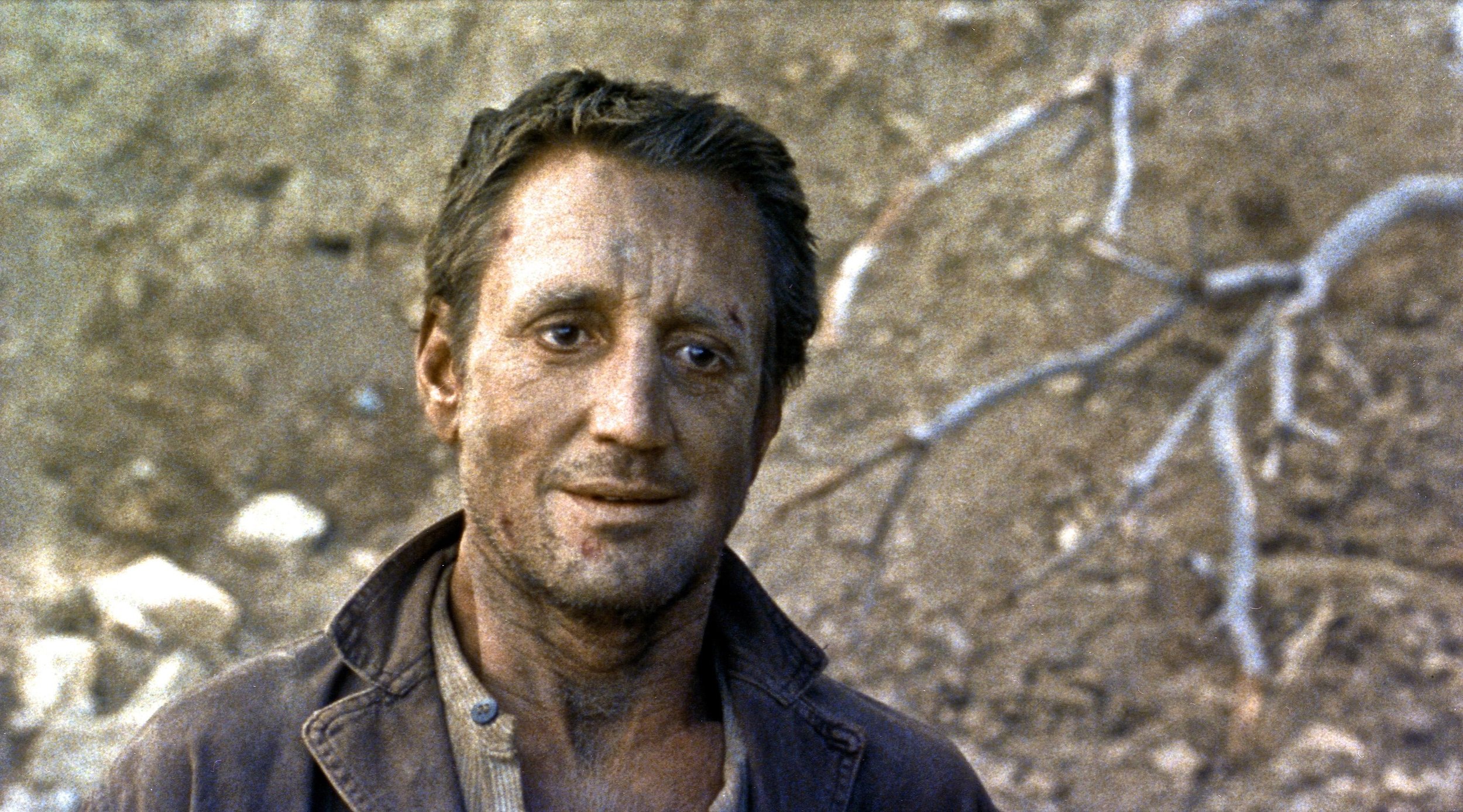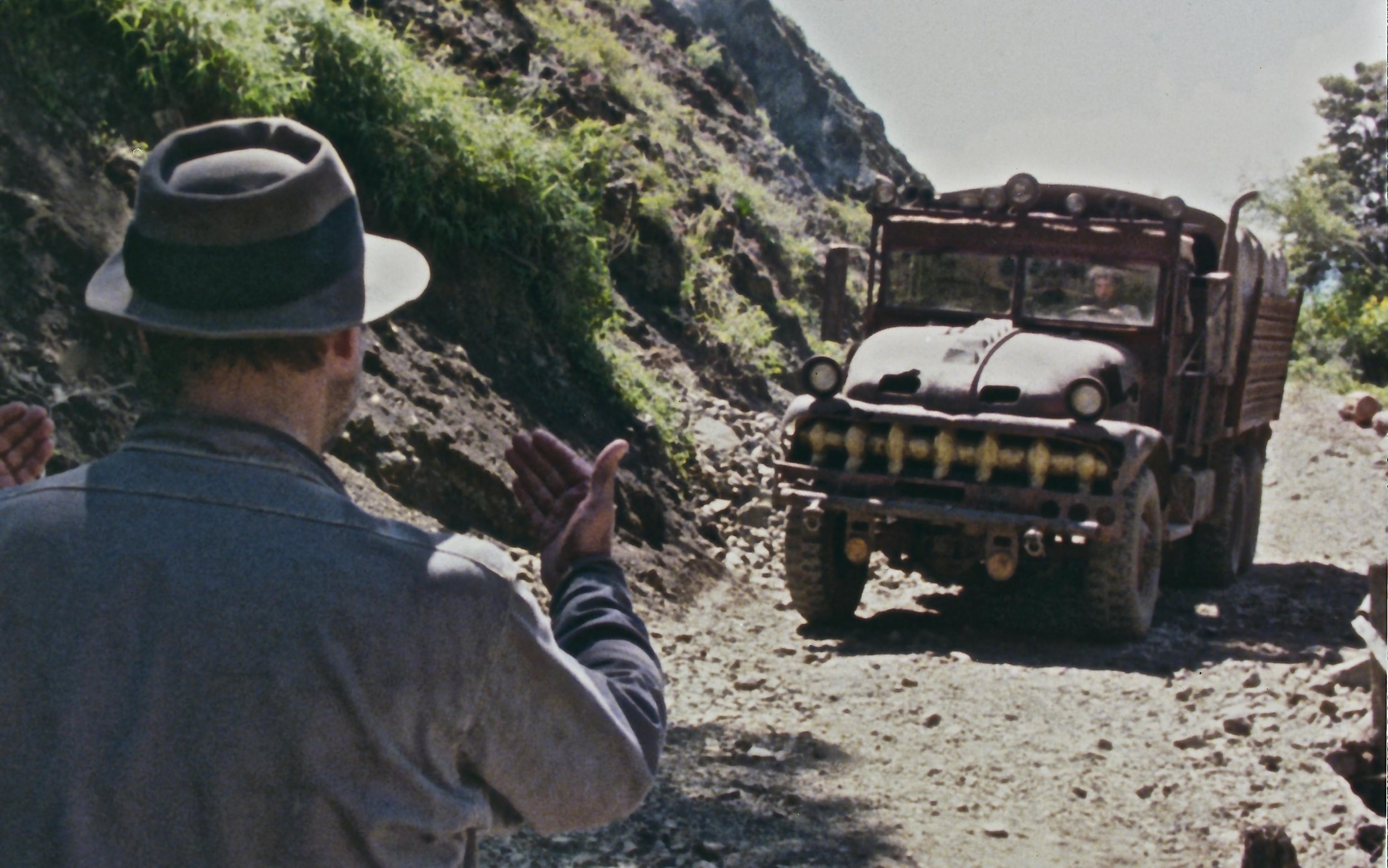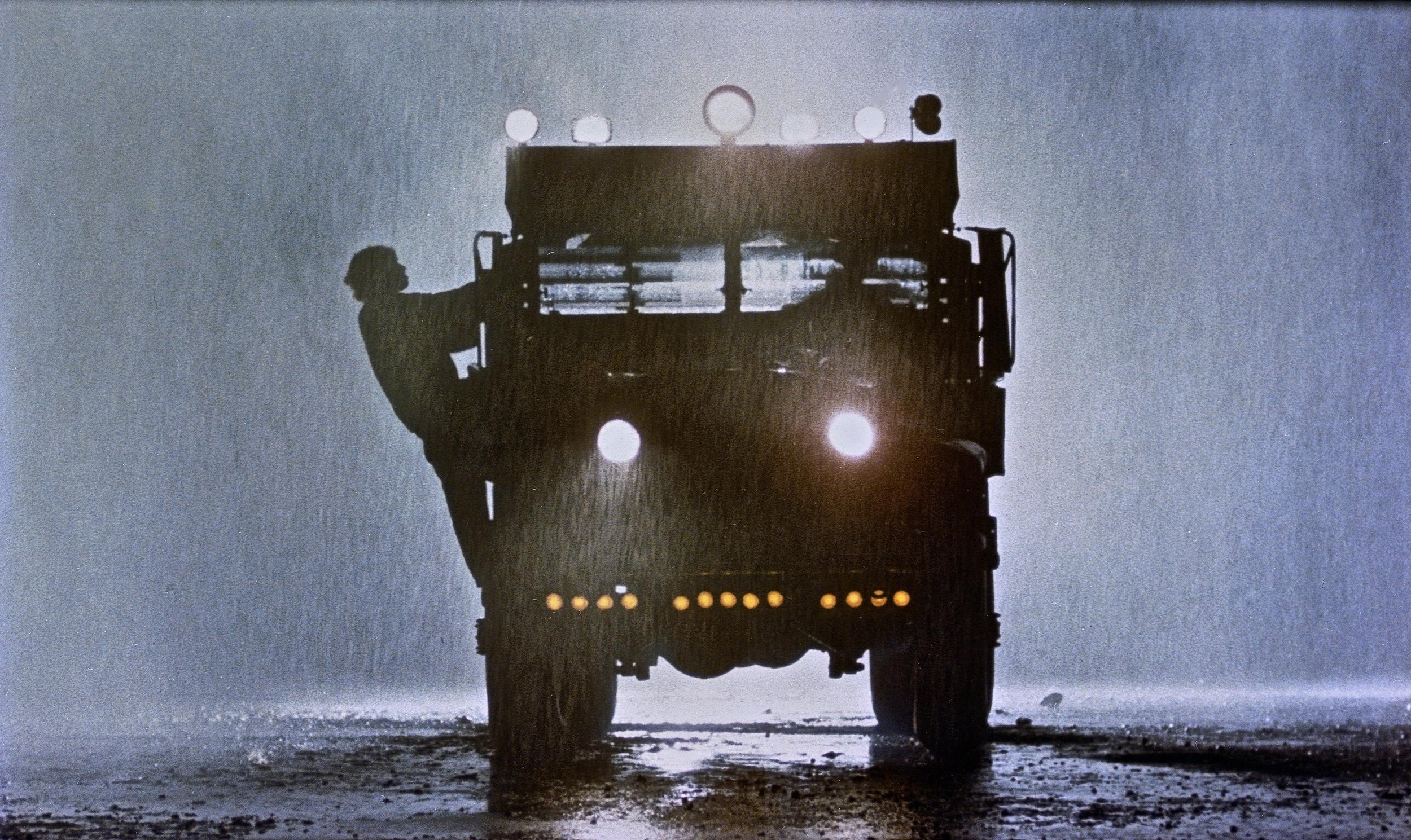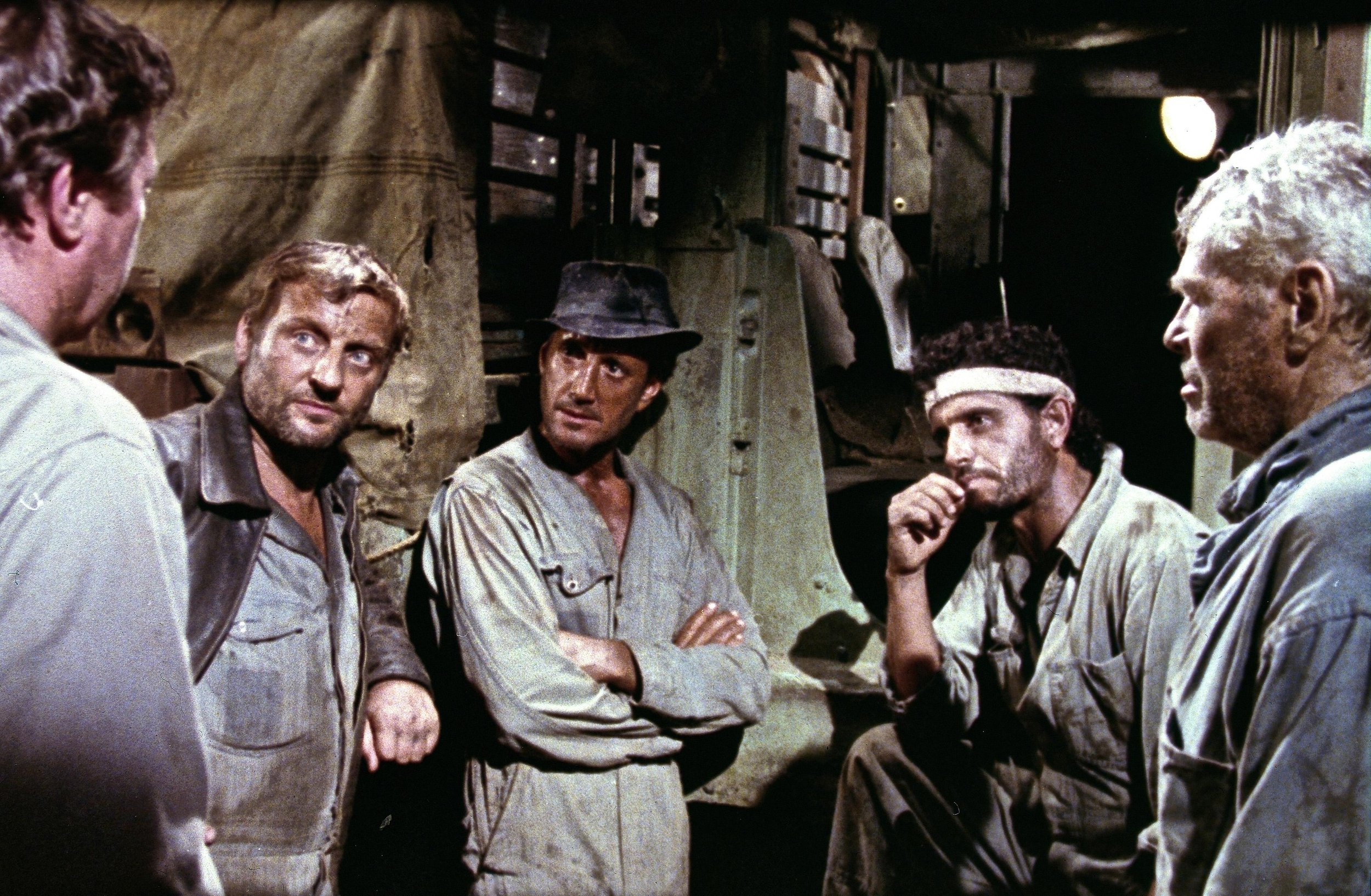Sorcerer (1977)
Director: William Friedkin
Starring: Roy Schneider, Bruno Cremer, Francisco Rabal, Amidou
Primary genre: Thriller
What do you do after you directed the scariest (and albeit most successful) horror film of all time? Friedkin’s answer to his supernatural magnum opus “The Exorcist” (1973), was an adaptation of George Arnaud’s novel “Le Salaire du Peur” (1950) bizarrely titled “Sorcerer” although it has absolutely nothing to do with possession or any form of demonic invasion.
Shaped within the confinements of a 70s thriller, Friedkin opts out to tell a story of four men going against the tide of fate through circumstances of their own making. In its initial four segments, the film introduces our diverse quadrant across different countries providing enough characterization that will be used later as cinematic ammunition for plot progression. Plagued by their moral values and guilt and seeking a way out of their poverty stricken situation in a remote Colombian village, they are enlisted by an oil company to transport six cases of dynamite oozing nitroglycerin through scrap made trucks. Under constant danger, the smallest bump could result in their death. Subverting expectations at every turn, “Sorcerer” is more bleak that his “Exorcist”; there is no triumph against evil here, just broken individuals lacking destiny and purpose in life, their previous status, ideals and moral compass revoked in a place where a monthly wage does not exceed one US dollar.
Interestingly enough, this 351km journey through a thick rainforest makes for a compelling story. With fantastic cinematography by John M. Stephens and Dick Bush and a dreamy score from Tangerine Dream, this primarily humid and wet landscape is an arena of booby traps set by a forest Poseidon if you will, who attempts to stop this “blasphemous” mission at all costs. Representing how inhumanely and incomprehensibly fate works, this cluster of bad luck and worse decisions culminates into a thrilling and heart stopping suspended bridge sequence whose sheer scale and technical ambition puts modern films to shame. Friedkin shoots with an otherworldly aura, even the mechanical trucks seem like soulless metallic demons contrasting the natural greens.
Similarly to what Francis Ford Coppola did in his “Apocalypse Now” (1979) which cinematically put Vietnam on the map (although it was shot in the Philippines), “Sorcerer” shows a raw and unpatronising odyssey through Latin America, in this case Colombia (although it was shot in the Dominican Republic, close enough). Mirroring Eduardo Galeano’s descriptions in his book “The Open Veins of Latin America” (1971) of how South American nations suffer under a different type of foreign occupation (i.e., foreign oil companies) this time around, Friedkin does not shy away from the harsh reality that has established itself in such remote locations, yet he wisely enough avoids any sharp socio-economic commentary. It is a tale of how the human survival instinct defies expectations against impossible odds with the backdrop of dependency theory and glorified oil colonialism.
Populated with sublime performances (Roy Schneider has the exact face for this type of situations) and never outrightly feeling any sort of an activistic vehicle, this is first and foremost a thrilling motion picture. Although one can see the disappointment inflicted in Friedkin’s career back in the 70s after the most famous tale of movie exorcism, time and history have been far better reviewers than the so called professional critics. “Sorcerer” is a cinematic masterpiece whose likes we do not see anymore by a fearless filmmaker at the top of his game refusing to cave into the corporate greed of the filmmaking complex.
Gripping 70s cinema
+Dynamic and raw direction
+Compelling, multi-layered story
+Sublime performances
+Suspended high bridge sequence
+Luscious cinematography
-Bleak, really bleak





